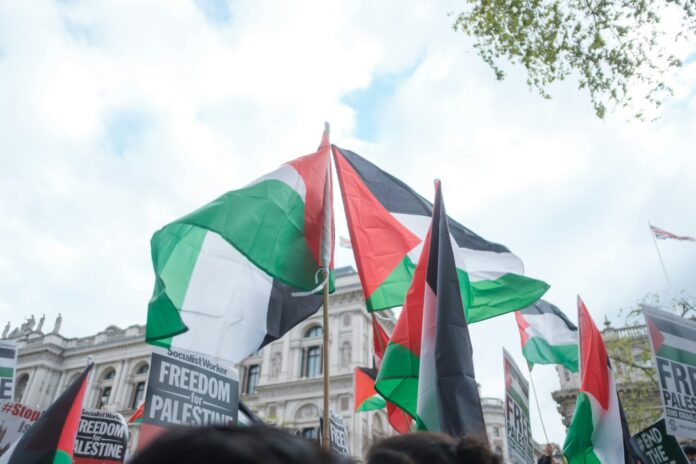Both governments investigating the incident amid rising tensions at the Egypt-Gaza border
The “competent authorities” are investigating the death of an Egyptian security team member in a shooting near the Rafah border zone, according to Egypt’s military spokesperson. Earlier on Monday, Israel’s military reported it was also investigating an exchange of fire between Israeli and Egyptian soldiers near the crossing between Egypt and the Gaza Strip.
“The competent authorities in the Egyptian Armed Forces are investigating a shooting incident near the border strip in Rafah, which has led to the death of one of the personnel securing the area,” Egyptian Colonel Ghareeb Abdel Hafez Ghareeb said on X, formerly Twitter. The incident marks a serious escalation in an already tense region, further complicated by Israel’s recent military actions in Gaza.
This month, Israel seized control of the Rafah border crossing from the Palestinian side as it launched a long-threatened military offensive in Gaza. This move has drawn strong international criticism, including from Egypt, which signed a peace treaty with Israel in 1979 and has since cooperated on security issues, especially around the Egypt-Gaza border.
Rami Dajani, project director of Israel and Palestine with the International Crisis Group, commented on the situation, stating that the overall situation in Rafah and Israeli operations there are causing “tensions across the board.” He added, “The Egyptians have a great deal of concerns about these developments right at its border. The security implications are extremely important for Egyptian national security.”
Earlier in May, Israel launched its widely criticized assault on Rafah, a narrow area in southern Gaza where hundreds of thousands of Palestinians had sought refuge from Israeli attacks across the enclave. The assault has led to significant displacement and casualties among the civilian population.
Rafah, at its most crowded, housed about 1.5 million people, most of whom are now fleeing from Israeli tanks and air raids. Late on Sunday, Israeli forces bombed a displacement camp in a designated safe zone in Rafah, killing 45 Palestinians, mostly women and children. This attack has triggered renewed international outcry and calls for a ceasefire.
In addition to the bombing in Rafah, Israeli forces have continued to bomb shelters housing displaced Palestinians in other areas, including Jabalia, Nuseirat, and Gaza City. According to Palestinian officials, these attacks have killed at least 160 people, further exacerbating the humanitarian crisis in the region.
The shooting incident at the Rafah border underscores the fragile and volatile situation in the area. As both Egyptian and Israeli authorities investigate, the international community watches closely, urging restraint and a focus on de-escalation to prevent further loss of life and instability.
Analysis :
The recent shooting between Egyptian and Israeli personnel near Rafah highlights the complex and tense dynamics at the Egypt-Gaza border. This incident, set against the backdrop of Israel’s military operations in Gaza, raises several critical issues from political, sociological, and security perspectives.
Politically, the shooting incident underscores the fragility of the peace treaty between Egypt and Israel. While the treaty has facilitated cooperation on security issues, events like this demonstrate the underlying tensions that can quickly escalate. The international community, particularly entities like the United Nations and neighbouring countries, must closely monitor the situation and advocate for diplomatic resolutions to avoid further conflict.
Sociologically, the incident exacerbates the humanitarian crisis in Gaza. The ongoing military operations and the resultant displacement of civilians highlight the dire conditions faced by the Palestinian population. The bombings in Rafah, Jabalia, Nuseirat, and Gaza City, which have resulted in significant civilian casualties, illustrate the severe impact on communities already struggling with limited resources and infrastructure.
From a security perspective, the incident poses significant concerns for Egyptian national security. The proximity of the conflict to Egypt’s border with Gaza necessitates heightened security measures and increased vigilance to prevent spillover effects. The shooting incident, coupled with the broader military operations, highlights the need for robust border management and cooperation between Egyptian and Israeli authorities to prevent further incidents.
Economically, the prolonged conflict and instability in the region have detrimental effects on local economies. The displacement of populations, destruction of infrastructure, and disruption of trade routes exacerbate economic hardships for the affected communities. International aid and economic support will be crucial in addressing the immediate needs and facilitating long-term recovery and stability.
From a gender and minority perspective, the conflict disproportionately affects women and children, as evidenced by the casualties in the recent bombings. Addressing the specific needs and vulnerabilities of these groups is essential in the broader humanitarian response. International organizations and humanitarian agencies must prioritize the protection and support of women and children in their relief efforts.
In conclusion, the shooting incident between Egyptian and Israeli personnel near Rafah highlights the complex interplay of political, sociological, and security factors in the region. The international community’s role in advocating for diplomatic solutions, providing humanitarian aid, and supporting long-term stability is crucial in addressing the multifaceted challenges posed by the conflict.
